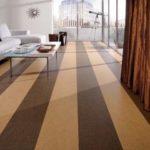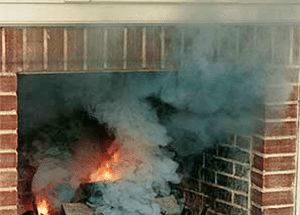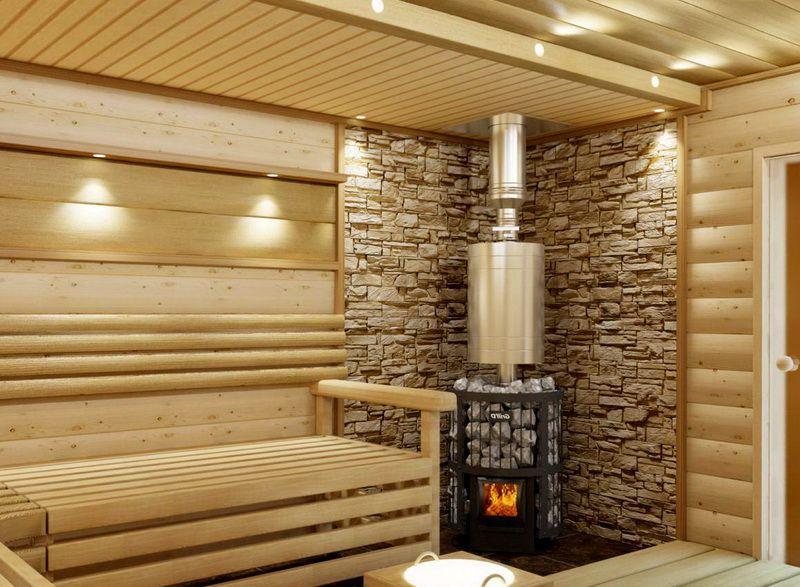Which brick is best for a stove?
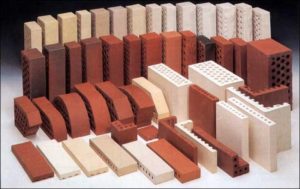 In the modern world, you don’t have to put a lot of effort into heating a private home. All you need to do is go to the store and buy a modern heater, and then enjoy its stable operation, and as a result, the optimal temperature in the room. But some still do not recognize modern technology and prefer to install real brick stoves in their homes. These people do not change the traditions of their ancestors. But what kind of stone is best to build such structures from, and how to choose the optimal material? We will talk about this in today's article.
In the modern world, you don’t have to put a lot of effort into heating a private home. All you need to do is go to the store and buy a modern heater, and then enjoy its stable operation, and as a result, the optimal temperature in the room. But some still do not recognize modern technology and prefer to install real brick stoves in their homes. These people do not change the traditions of their ancestors. But what kind of stone is best to build such structures from, and how to choose the optimal material? We will talk about this in today's article.
The content of the article
What bricks are suitable for masonry
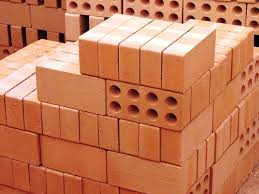 Bricks for laying stoves must meet a number of requirements. First of all, it must be solid and not include voids, and there cannot be chips or other flaws on its surface. In addition, the stone must have a good geometric shape with clearly defined edges. And a prerequisite is its high-quality firing.
Bricks for laying stoves must meet a number of requirements. First of all, it must be solid and not include voids, and there cannot be chips or other flaws on its surface. In addition, the stone must have a good geometric shape with clearly defined edges. And a prerequisite is its high-quality firing.
Important! When you tap on a good brick, you will hear the sound of metal, and if it falls from a height, it will break into several large pieces.
What parameters should a good brick for a stove have?
The size of the stone must meet certain standards - 23 by 12.3 or 11.3 and 6.5 cm.These standards are used in virtually all masonry drawings and plans. But for the construction of an ash pit, it is recommended to use a special version of the brick, which is yellow in color. But, for the main design, the usual red or white Gzhel options are perfect.
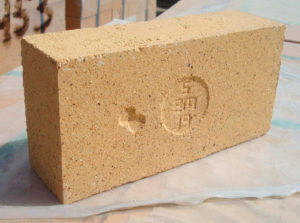 In addition, in the process of choosing a material, you will need to take into account special markings. For stoves, the range from M150 to M200 is an excellent option. These numbers reflect the strength of the material. In other words: these stones will be able to withstand a weight ranging from 150 to 200 kilograms per square centimeter. When purchasing a stone, it is recommended to pay attention to its color. It must be uniform, and when the material breaks, the internal shade cannot differ from its outer shell.
In addition, in the process of choosing a material, you will need to take into account special markings. For stoves, the range from M150 to M200 is an excellent option. These numbers reflect the strength of the material. In other words: these stones will be able to withstand a weight ranging from 150 to 200 kilograms per square centimeter. When purchasing a stone, it is recommended to pay attention to its color. It must be uniform, and when the material breaks, the internal shade cannot differ from its outer shell.
Which brick is best for a stove in a house?
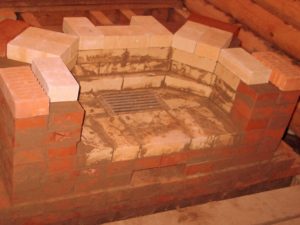 The selection of a specific brick depends on what part of the furnace it will be used for.
The selection of a specific brick depends on what part of the furnace it will be used for.
- For the foundation of the stove you will need to use a durable stone that is resistant to moisture and low temperatures. In view of the above, the ideal option would be the clinker version, which has the indicated properties.
- The firebox has walls of two layers. It is recommended to use chamotte for the construction of the interior, but ceramic material is ideal for cladding.
- Temperature readings in the chimney range from -40 to +400 degrees, and the material must withstand temperature changes without problems. Therefore, ceramic bricks are suitable for constructing the pipe. And in cities with a harsh climate, it is recommended to build a pipe from two layers: the inner one from clinker, and the outer one from hollow ceramic stone.
Which brick is better for a stove in a bathhouse?
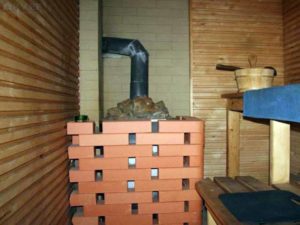 Any bathhouse will have a high level of humidity, which is why the above recommendations should not be used in full when installing a stove in it. It is recommended to build the stove from clinker stone, since fireclay or quartz brick, alas, will not work. They will lose optimal performance at humidity levels of 60 percent or more.
Any bathhouse will have a high level of humidity, which is why the above recommendations should not be used in full when installing a stove in it. It is recommended to build the stove from clinker stone, since fireclay or quartz brick, alas, will not work. They will lose optimal performance at humidity levels of 60 percent or more.
Attention! To build a firebox in a sauna stove, you can use ceramic refractory bricks, and use first-grade ceramic stone for finishing.
In addition, before starting work, you will need to inspect the material for damage, and only after making sure of its integrity should you begin building the stove.
Tips on how to choose a good brick for laying a stove
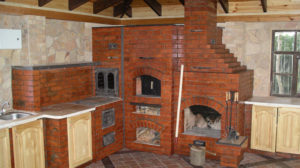 First of all, you need to find out whether the material meets the established standards. Based on them, you can find out whether the material parameters are suitable for optimal values. So, GOST 5402.1–2000 is intended to establish residual deformations after heating. Standard 4069-69 is used to test fire resistance, and 151136-78 is used to measure damage to the product outline.
First of all, you need to find out whether the material meets the established standards. Based on them, you can find out whether the material parameters are suitable for optimal values. So, GOST 5402.1–2000 is intended to establish residual deformations after heating. Standard 4069-69 is used to test fire resistance, and 151136-78 is used to measure damage to the product outline.
But at home, it is not always possible to carry out an appropriate check, which is why you just need to take a closer look at the surface of the material and inspect it for the presence of swellings, cracks and stains. If there are any, then it is best to look for bricks elsewhere.
Attention! It is strictly forbidden to purchase raw bricks and bricks made by slip casting for laying stoves.
Well, if the stone has a smooth and even shape, there are no visible defects on it, you can safely buy it and build a stove in your house or bathhouse.


